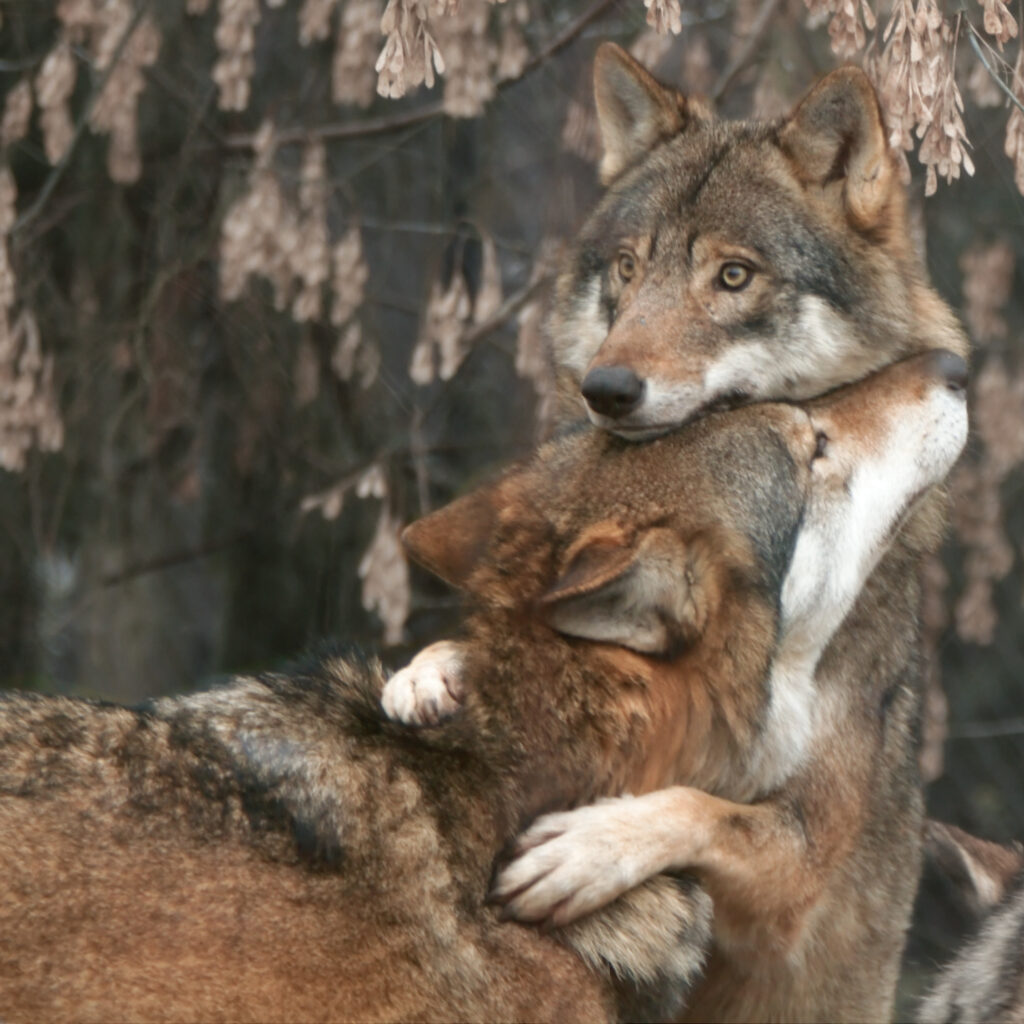Have you ever felt like you’re too needy? Perhaps it’s even seemed like serious goals to become so fully independent that you’ll never need anyone but yourself. Because (raises hand) I’ve certainly felt that way. It feels so vulnerable, and even a bit scary, to rely upon others. And sometimes, I’m even overcome by embarrassment when having to admit that I can’t meet all my needs on my own. But maybe there’s nothing wrong with us for needing other people?
The allure of independence can feel intoxicating. To be free from the influences of anyone or anything, and instead, be solely in control of our own lives. But the sober truth is that we weren’t really built for total independence. It’s just not in our biology.

Independence and evolutionary biology
Our narrative about independence
Humans are great at telling stories. We narrate our worlds, detailing ideas about what is and what ought to be. When we unite around a common story, we create shared beliefs. And one of our grand stories is that we can, and should, free ourselves by seeking even more independence.
This philosophy of independence is generally more aligned with a Western perspective that prioritizes individualism over a more Eastern focus on collectivism. For example, we applaud the “self-made” individual, supposedly climbing to the top on their own, all while ignoring the contributions of others toward their success. Even the field of psychology traditionally assumed that we were meant to be fully independent and self-sufficient (before the study of “attachment theory” threw that premise into serious doubt).
Further, the self-help/improvement industry often prescribes fortifying the one we can control—ourselves. We’re encouraged to internally meet all of our needs so that we never have to count upon another. And we’re supposed to become unflappable stoics, setting up barriers so that nothing external may ever make even a single ripple of a wave disturbing our inner worlds. On the other hand, we risk the stigma of being labeled as “needy” for simply seeking comfort from one another.
The truth about evolutionary biology
Society might tell us that we should be independent, but evolutionary biology tells another story. A single human is not well equipped to survive. All alone, we are easy targets for hungry predators. We’re also not likely to have much luck obtaining basic necessities, like food, shelter, and clothing, without leaning on one another to share knowledge, tools, labor, etc.
For generation after generation, though, our ancestors banded together to help each other stay alive. We formed families, tribes, and larger communities where we could cooperatively pool our resources. So, natural selection allowed for higher rates of survival among those who were well adapted to this highly social environment, and our ancestors’ social genes have been passed down to us. As a result, our evolutionary heritage has created a genetic blueprint where our DNA still insists that our well-being depends upon our social relationships.

How Do We Need Others?
Emotionally
A sense of safety is one of our most essential emotional needs. And to feel emotionally safe, we need to feel securely connected in our closest relationships. When feeling alone, on the other hand, our biological instincts take over, causing our brain’s amygdala to activate, creating a sense of panic. This served our ancestors well by motivating them to seek out one another, thereby increasing their odds of survival. In modern times, a sense of disconnection can still grip us with fear, as we can feel like our very lives are at risk. So, to truly feel safe, we really need the comfort of believing that we can count on those who care about us.
Physically
Our bodies are not designed to function independently. Instead, we are physically impacted by one another. Through connection, we can help regulate each other’s blood pressure, heart rate, breathing, and levels of hormones. This is known as co-regulation. So, for example, the comforting presence of a trusted companion can put us at ease by instructing our bodies to lower our blood pressure/heart rate, take deeper breaths, and release the calming hormone, oxytocin. We can even influence each other’s levels of pain. Research studies have shown that when holding the hand of someone we love, our brains synchronize, resulting in decreased perceptions of pain. The functions of our bodies are so intertwined that in the book, Attached, Dr. Amir Levine and Rachel Heller question whether humans even qualify as separate entities.
Mentally
As the saying goes, “two heads are better than one.” When we brainstorm together, we can arrive at constructive ideas that we couldn’t form on our own. This can lead to creative new ways of viewing the world and unique solutions to problems. We can also expand our knowledge by borrowing insights from one another’s personal wisdom. Research has additionally shown that we learn more when teaching someone else. So, even in sharing information, we are able to think more effectively. Respectful debates can also help us to think more productively by forcing us to consider alternative perspectives. We gain the chance to have our thoughts challenged, allowing us to either strengthen our position or adopt a new one. By thinking together, our minds are able to grow and bloom an abundance of budding new ideas.
Spiritually
Spirituality is often associated with religion or supernatural beliefs. But the term can be used more broadly, from the most devout religious believer to fervent atheists. Spirituality can simply be about connecting with something beyond one’s self to find a deeper sense of meaning. Many seek this connection through belief in a deity. But anyone (including atheists, like myself) can add depth to their lives by connecting with something greater than ourselves via a sense of belonging in our relationships. So, regardless of one’s exact religious or spiritual perspective, we can cultivate a deep sense of meaning in our bonds with one another.
The Value of Interdependence
While hyper-independence is unrealistic and unhealthy, so is excessive dependence. On one hand, there’s the attitude of “I can do it all on my own,” and on the other, there’s the perspective of “I can’t ever be on my own.” But thankfully, there’s a goldilocks middle ground between the two extremes. When we are able to rely on ourselves to meet some of our needs while also accepting support from others, that’s interdependence.
When we form interdependent relationships, we are surprisingly more capable of taking care of ourselves. In what’s known as the “dependency paradox,” psychological research has shown that when trusting that we can depend upon each other, we actually have greater confidence to behave in ways that are more daring and independent. So, when we have the reassurance of trusting that we can reach out to each other, we feel more capable of going out into the world and doing things on our own.
No Shame in Needing Each Other
We might feel like a burden when relying upon others, but that’s likely not true. It feels good to be able to contribute. We actually get a “helper’s high,” in which extending help creates a sense of euphoria. That’s one of the reasons volunteering can be so fulfilling. So you might be surprised by the extent to which people are enthusiastic to be there for you.
Just as we need others, they need us too. So even though we may receive from others, we also have chances to give back. That’s what reciprocity is all about.
“It’s in our nature to nurture and be nurtured” –Maia Szalavitz & Dr. Bruce Perry, Born for Love
So, we have no reason to feel ashamed when we find ourselves having to admit, “I need you.”
Embracing the Truth about Independence
To borrow some insightful words of the psychologist and vegan activist, Dr. Melanie Joy:
“The assumption that we can and should be islands unto ourselves has caused tremendous suffering, because it causes us to deny, ignore, and judge our normal, natural, and healthy relational needs as ‘wrong.’”
We are not solitary creatures, so it’s simply not part of our biology to be all on our own. Of course, we need a certain degree of independence, but we also need to depend on others too. We can find this balance by engaging in healthy interdependence. We are simply being honest about our nature, as social animals, when we accept that sometimes we need to lean upon each other.
Get more like this—Sign up for our daily inspirational newsletter for exclusive content!
__
Photos: Creative Commons (Mohamed Hassan); Creative Commons (Sander van der Wel)




